Ecommerce SEO - optimisation for online stores
Ecommerce SEO refers to the optimisation techniques designed for businesses that operate electronic stores and conduct digital trade. The primary objective of ecommerce SEO is to increase the visibility of the online store to potential customers, gain approval from search engine algorithms through systematic practices, and ultimately drive sales for the store owner.
Tracking your sales
What is SEO for online store?
Understanding SEO services for electronic trade requires a fundamental knowledge of what SEO is and how it functions. SEO stands for search engine optimisation, and it involves the process of improving a website’s visibility in search engine results by optimising its content and using relevant search terms that users may employ.
Electronic trade SEO is a means of organically positioning your website in front of your target audience. Once these users visit your website, you have the opportunity to engage with them and convert them into customers. SEO provides the advantage of attracting the right audience to your website at any given moment, allowing you to establish a strong online presence and effectively reach your target market in the digital world.
Ecommerce SEO will allow you:
- To build reputable online presence
- To create a base with keywords, which will attract and direct the interest of potential clients to your online store
- To position your business locally or nationally.
- To provide solutions to the clients in a proper for them way
- To increase your online effectiveness and conversion
- To ensure the competitiveness in the huge digital market.
By availing SEO services for your digital marketing efforts, you can optimise your online presence, adapt to changing user requirements, and effectively compete in the saturated digital marketplace. We can make your business compete in the saturated market and stand out among the crowd.
Why optimise your online store?
If SEO is just to build visibility of your site for search engines, what exactly do SEO services for electronic trade do, which you are carrying out or planning to do?
SEO for digital trade is a lot more than the content of your website. Search engines are tuned to a better users’ experience. It’s not only about what you sell. Moreover, it’s about how you sell it, how you advertise it and how you maintain the user’s experience during their journey. Basically, we’re talking about your strategy to be on top of the market, where you’ve positioned your business.
For many small and average businesses, for many companies, the clients’ journey starts long before they reach the site.
We, MOXX Advertising, can ensure this exciting journey of our clients – from the marketing to the email and social media, to do visualisation of the searched product, service, information. Only the ‘buy’ button will be left.

SEO for online stores – what does it include?
In order to improve the performance of your online store, attract more orders, and receive positive referrals, we need to go through the following steps:
- Conduct a quick and simplified review of your online store.
- Engage in a conversation where we will discuss your challenges and explain our findings.
- Provide you with an offer, including a plan and pricing for SEO of your digital store.
- Request administrative access to all relevant tools and the online store. If you don’t have profiles in Google Analytics, Google Search Console, Ahrefs, etc., we will create them for you.
- Conduct a full SEO audit for the online store.
- Build and analyse a semantic core with keywords for optimisation, identify your potential client profile, and create a link-building plan.
- Develop a time-framed plan with all tasks for SEO.
- Execute the plan accordingly.
- Provide regular reports on the results achieved.
- Offer training to you and your team on how to maintain the SEO level without our assistance.
Conducting periodic audits to assess the results and make necessary optimisation adjustments to achieve an even better outcome.
Common mistakes when creating online stores
It is normal to overlook important details when creating your online store, which can lead to lower rankings.
- Heavy design and complex structure – Over 85% of searches are done through mobile devices, and having everything cluttered on the first page or a poorly-structured site can discourage customers.
- Lack of sufficient or poorly organized information – Product features and descriptions should be easily readable and well-organized, considering the user experience through mobile devices.
- Absence of options for selection and filtering – If you sell weights, for example, and each color or weight is treated as a separate product, it can confuse and waste customers’ time.
- Poor quality images – Using low-quality or missing images can harm your rankings. Product names should match the images, and language consistency matters.
- SEO plugins – There are various plugins available for every platform, but misconfigurations, lack of result checks, and excessive reliance on automation can be detrimental.
- Lack of a clear goal – Not having a clear plan on “what to sell, to whom, and how” can create chaos in your online store.
- Relying solely on paid ads – If you solely depend on paid ads, stopping them could result in a significant drop in orders (up to 60%).
This list of mistakes we have encountered is quite extensive. We are prepared and have addressed each of them. Trust us!
SEO analysis of your online store
The analysis of each online store begins with a client’s perspective, evaluating the following aspects:
- Website convenience and speed
- Product presentation – photos, options, characteristics, and choices like colours, sizes, etc.
- Ordering process – evaluating the ease and efficiency of the ordering process.
Next, the website is crawled using various tools to conduct a comprehensive analysis, including:
- Content errors
- Duplicated and missing content
- Keywords and ranking
- Page indexing
- Enriched results
- Site structure
- Quality and quantity of internal and external links
These analyses are conducted to identify both visible and hidden issues and to create a tailored SEO plan for improvement.
Competitors analysis
Market analysis is indeed a crucial component of a brand’s marketing strategy. By investigating the needs of clients, identifying market gaps, and analysing competitors, businesses can position themselves for success and build a strong reputation.
Analysing your direct and indirect competition is a crucial part of the equation, as it can help us understand how to position your products for maximum profitability. Additionally, to build a reputation that competes with well-established companies, we need a detailed understanding of your direct and indirect competitors.
Once your competitors are identified, we can assess their strengths and weaknesses, opportunities, and threats by evaluating the following:
Strengths
- What is your competitor known for?
- Why are customers attracted to the competitor?
- What compels the customer to choose their brand over others?
Weaknesses
- What are the common complaints from customers?
- What products/services do customers demand but are not offered by the competitor?
- What issues do customers encounter during the shopping process?
Opportunities
- Has your competitor discontinued any product or service?
- Are there any gaps that your competitor cannot fulfil?
Competitiveness
- What are the prices of products/services offered by your competitors?
- Are they introducing new products or services?
- Do they pose a threat to your business?
Analysing the competitor’s website, social media pages, keyword usage, and content can provide valuable insights into their online marketing strategies.
Technical optimisation of online store
Technical SEO is of utmost importance for every website, and it becomes even more critical for digital trade websites due to their larger size. With more pages and frequent changes, digital trade sites may face problems and have fewer backlinks pointing to their pages. In the highly competitive digital landscape, technical SEO problems can significantly impact a site’s ranking in SERPs. Regular technical SEO audits are essential to address these issues promptly.
To effectively optimise your website from a technical standpoint, we need to consider the following aspects:
- Design and Architecture
- Loading Speed.
- Site XML Map
- Robots.txt
- Canonical URL Addresses
- Hreflang Tags
- Internal Linking
- Redirects and Errors
- Duplicated Content
- Structured Data Markup
- Missing Meta Titles and Descriptions
- Noindex Tags
All these checks signal potential issues and indicate where to apply our technical SEO skills to your online store.
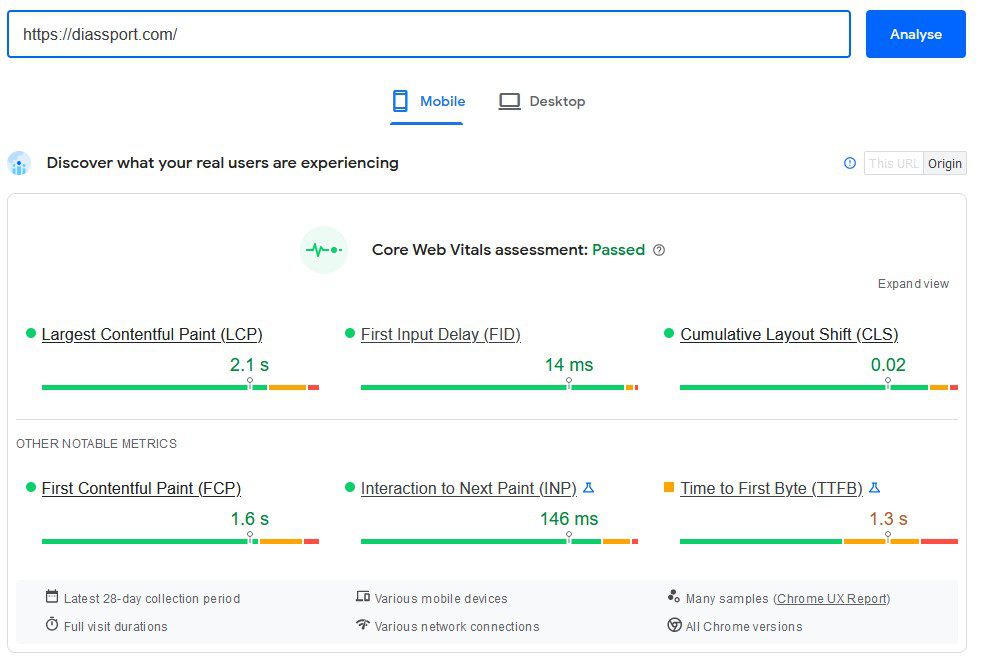
On-site SEO
After audit, analysis and technical SEO, we can start with the next optimisation:
Main pages, FAQ, 404 and reviews
Adding main pages for ‘Shipping and returns’, ‘Frequently asked questions’, and ‘General rules’.
You should add this information in the product page:
- Delivery time
- Possibility of return.
- Return request.
- Ability to connect via chat and phone.
Optimising a 404 page with additional details and links to products and promotional products.
Adding reviews for products and rating system.
Adding a section with FAQ.
Adding a section ‘Show more’ with information about programs, recipes, application, method of application or use and characteristics.
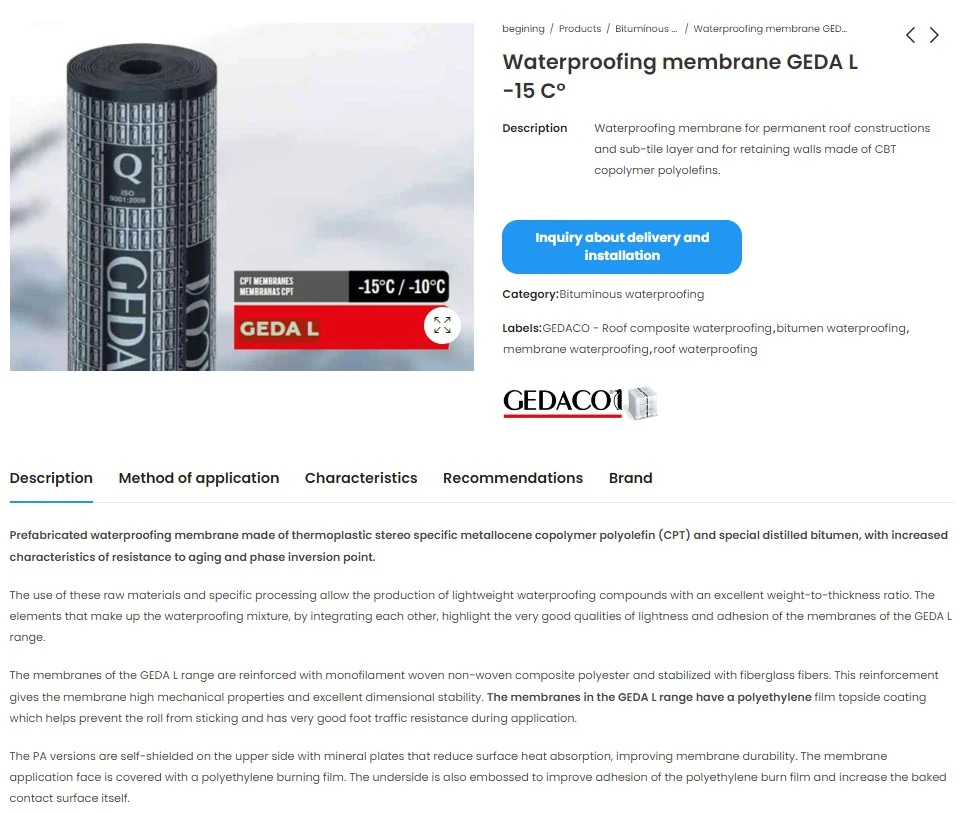
Structure and design of online store
The architecture of an online store is a crucial aspect of ensuring a seamless user experience and optimal performance. Regardless of the platform used, it’s essential to design mobile optimisation. We add mega menu, inner menu and linked products.
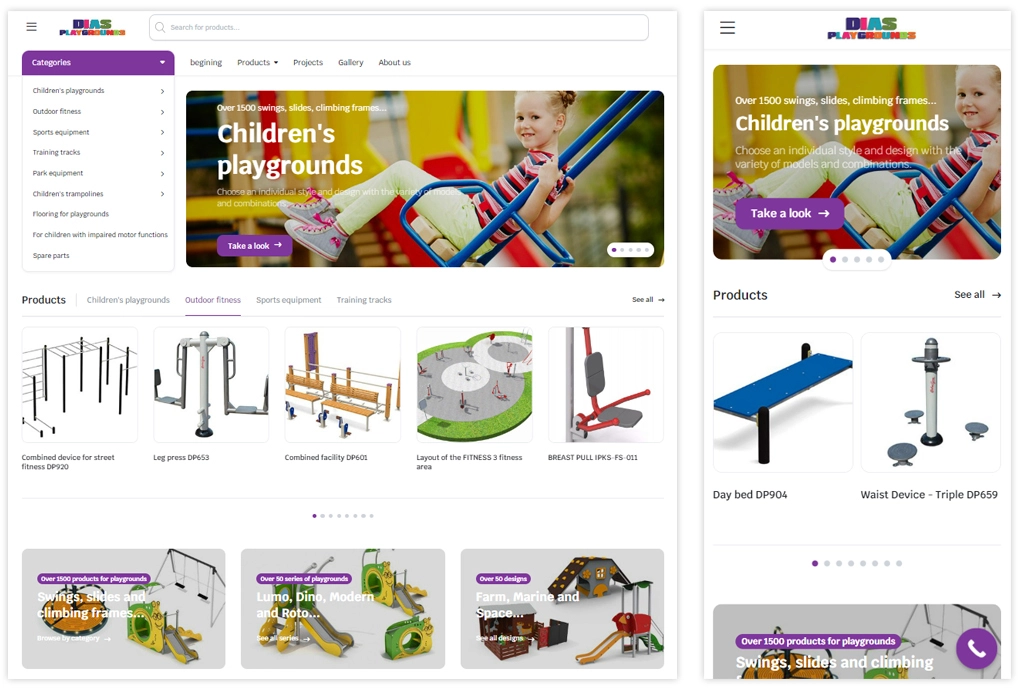
Optimising category and product page
According to the semantic core, a text is added with at least 1000 words, including 3-5 long-tail keywords.
Google wants to understand what your page is about. The more content you have, the better Google can do its job. Moreover, providing in-depth content on a product page helps clients understand what they are going to buy, resulting in a better user experience.
It may seem challenging to write 1000 words for each page of your website. However, we prepare long, in-depth descriptions for the first 10-59 most important product and category pages.
We also include linked products such as ‘You may be interested in these products’, ‘More from the category’, and promoted products.

Title optimisation
Online stores frequently have repetitiveness of products, which leads to duplication and generating errors, why we optimise titles adding characteristics and including long keywords.
For example:
- Set of rubber coated dumbbells
- Set of dumbbells, detachable, metal
- A set of dumbbells in a suitcase
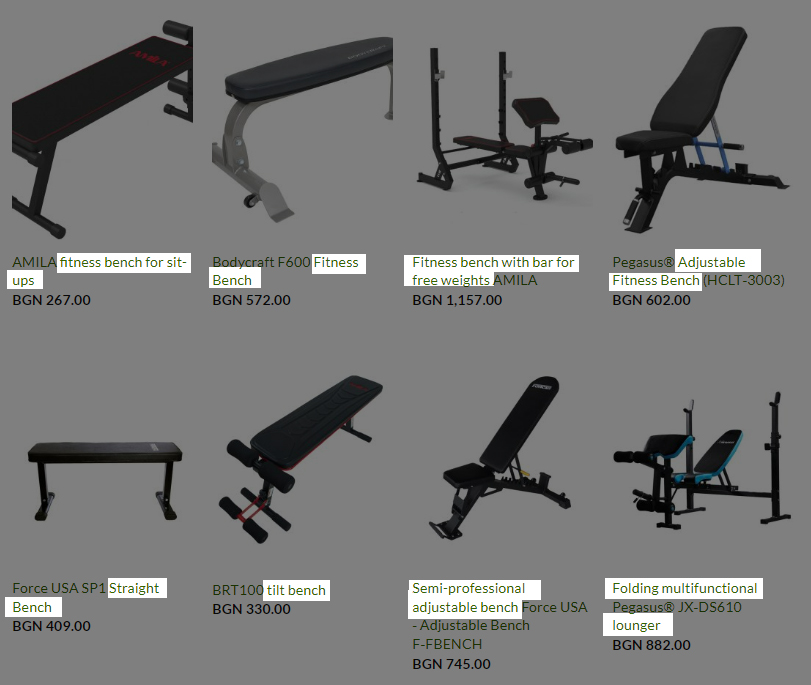
Optimising meta tiles and meta descriptions
Here, we apply the power of persuasion and an attractive form. We use words like ‘Branded,’ ‘Quality,’ ‘Large selection of …,’ ‘Promotion of…’.
Meta titles and descriptions should be informative, inviting, and eye-catching.
Before optimisation
After optimisation
Adding a scheme for enriched results
A convenient and optimal option to make your products stand out is by using schema markup for enriched results, which includes features, price, and rating.
Optimising checkout page
You can lose many clients if the checkout page is too complex or missing options. Issues such as a lack of fast delivery options, difficulties in choosing a delivery location, limited payment choices, and unclear invoice details can deter customers from completing their purchase. To prevent these problems, the checkout page should be lightweight, one-step, and offer a maximum number of options to ensure a smooth and convenient shopping experience for your customers.
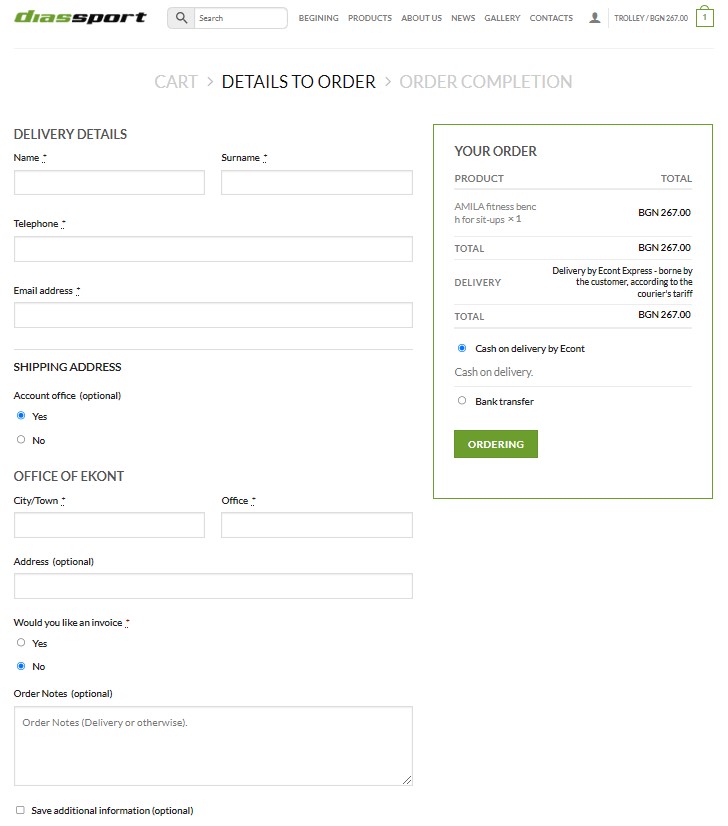
Building inner links
You can reduce your site’s bounce rate by increasing internal links. This practice not only helps improve your search engine ranking but also encourages users to spend more time browsing your online store.
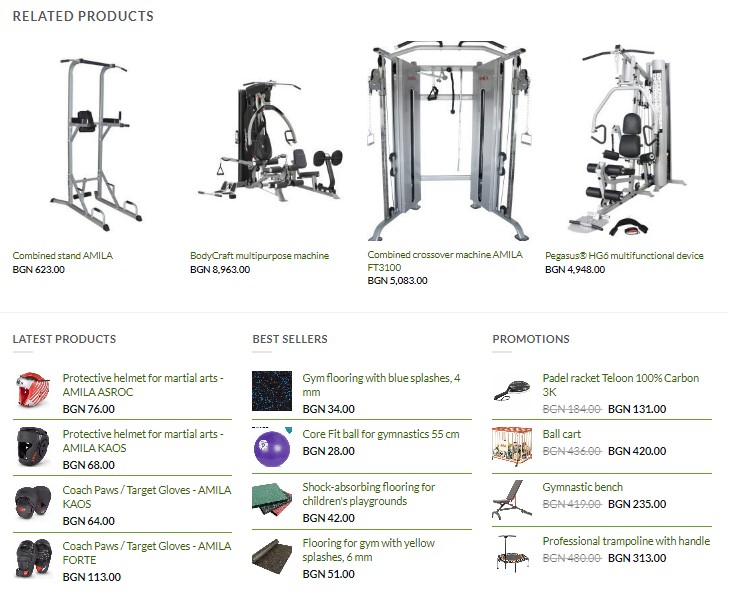
Tracking your sales
These changes don’t mean anything if you don’t track or optimise sales. Creating profiles in Google Analytics, Google Search Console, and Ahrefs can help you track your sales and keyword rankings.
Tracking the success of your website is easier when we know what KPIs to be careful about. Here are the best ways to see if SEO works:
- Organic traffic: This is the visit count coming to your website from organic search engines, and it is the most obvious KPI for everyone who wants to track the effectiveness of SEO.
- You can use Google Analytics to track your organic traffic.
- Keyword ranking: If we’re creating content with optimisation for a specific keyword, measuring how you rank for that keyword is important.
- You can use Google Search Console or a dedicated tool like SEMrush to track how your content is performing against certain keywords. These tools will also help us see if other keywords are added that may be relevant to your web store.
- Organic CTR/Bounce Rate: For SEO optimisation to be truly successful, we’ll need to make sure that the traffic you’re capturing is a) staying on your website and b) taking an action you want them to take. CTR from SERPs can also provide us with valuable information about how effective meta-titles and descriptions are at attracting visitors.
- We use Google Search Console and Analytics to measure how your visitors interact with your content.
- Revenue: Observing how much of your organic traffic ends up turning into measurable revenue can help us determine exactly how much value ecommerce optimisation brings to our marketing efforts.
Attracting relevant traffic to your online store should lead to a natural increase in revenue. If this is not the case, this is a good indicator that we may need to review the customer journey in your online store.
Prices for Online Store Optimisation
We offer monthly packages with fixed prices and services that you can take advantage of, or you can request an offer for a comprehensive optimization of your online store.
Are you ready to trust us? Choose a monthly subscription plan or contact us if you have any further questions.
'Secrets from the Kitchen' of E-Commerce SEO
The secret of E-commerce SEO lies in once you enter the rankings and achieve high visibility in organic search, you generate sales on autopilot. This is a simplified statement, but in reality, it involves conducting keyword research, website construction, content creation, technical E-commerce SEO, implementing SEO for online stores, link building, and more.
The key to successful ecommerce SEO
Ecommerce or modern ecommerce – it doesn’t matter, your online store must be perfect. Let’s work for your success!







